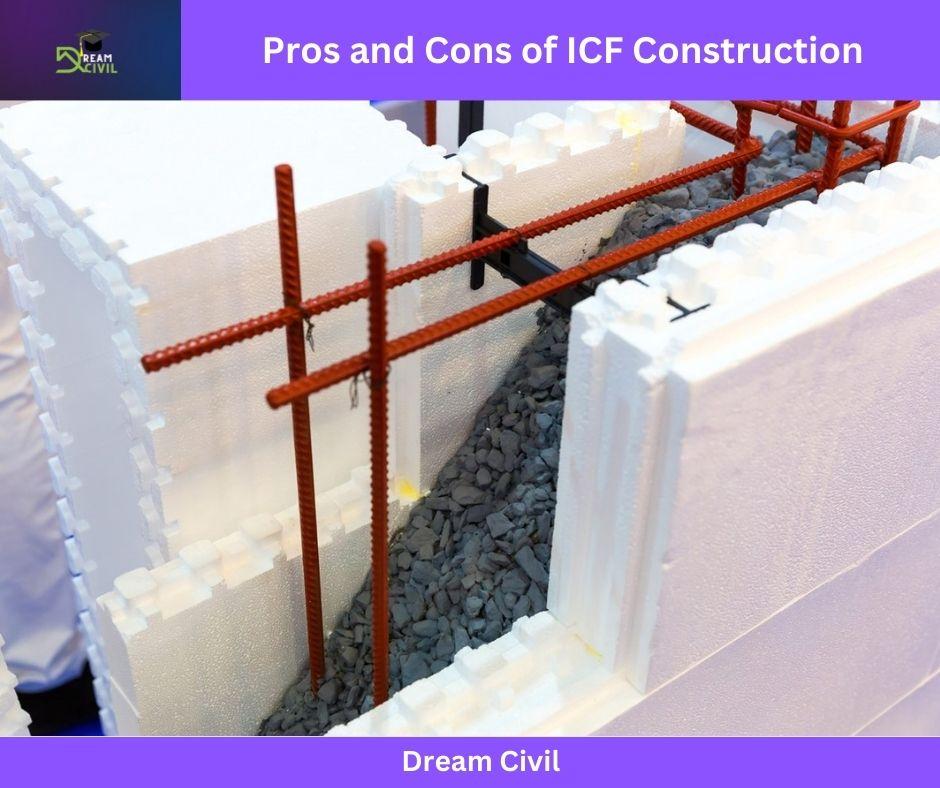Table of Contents
Are you interested in building a new home or work structure? While there are various construction methods to use, one to consider is Insulating Concrete Forms (ICF) construction. This type relies on concrete forms to keep a structure set in place and insulated.
✓ Despite being around for decades, many still don’t know or quite understand how ICF construction works. Below you’ll discover some of the pros and cons of this option to determine if it fits your needs.
Pros and Cons of ICF Construction
1. Benefits of ICF Construction
a. It Encourages Low Energy Costs
✓ One of the top perks of ICF construction is that it will significantly reduce energy costs. Because they are built with energy-efficient materials and features, you’ll notice your energy bill won’t be as much.
✓ The concrete blocks are tightly packed together, so there’s no fear of air sneaking in or out – a common cause of high energy bills. This construction also makes it easier for the structure to regulate interior temperature naturally, so you won’t always have to be running a heater or air conditioner often.
b. It’s Low Maintenance
✓ You’ll also find that ICF structures are built to last, so they’re pretty good at withstanding common structural problems like pest infestations and mildew. Thanks to this, they can last for up to a century without serious issues and constant renovation needs.
c. It’s Sturdy
✓ Thanks to its strong concrete reinforcements, ICF homes are incredibly sturdy. Most can withstand harsh storm winds and can even be fire-resistant for a few hours.
✓ To create this resilience, the construction requires a very specific process. To begin, a foundation is dug. Hollow foam blocks are then placed in it and secured with steel bars. Once the entire frame is built, concrete will be poured into the foam to set.
d. It Blocks Sounds
✓ One interesting aspect of this option is that it can block outdoor sounds. This is due to the foam insulation inside the concrete forms.
✓ As sound tries to travel through the walls, the foam absorbs it, preventing it from entering the structure. ICF homes tend to have a Sound Transmission Class (STC) rating of 55, which is one of the highest sound-blocking levels meaning that most sounds can’t be heard or distinguished.
e. It Improves Your Home’s Resale Value
✓ Because they’re durable and incredibly energy efficient, ICF homes can have a huge resale value. However, sometimes it’s not always obvious that a structure is an ICF one, so it’s crucial to highlight this point and its benefits should you decide to sell.
✓ The more you maintain the structure, too, the more its value increases, making it quite a great investment for the future.
2. Downsides of ICF Construction
a. It Doesn’t Always Work Well in Cold Climates
✓ If you live in an area that experiences frigid temperatures constantly, ICF construction isn’t ideal. This is because, as the structure is being built, cold temperatures can make it harder for the concrete to set properly.
✓ The building timeline might also be extended because weather conditions could make it too difficult to continue construction.
b. It Can Be Pricey
✓ ICF homes come with incredible benefits, but with these sometimes come high prices due to their unique construction needs.
✓ Custom services are also usually needed, which boosts the costs. Overall though, the price reflects the structure’s high quality and resilience, often making it worth the funding.
c. It Could Be Difficult to Remodel
✓ Because it’s made with thick concrete blocks, renovating or adding new features will be tricky. This is because it’s often impossible to safely cut through the concrete foundation without irritating nearby areas.
✓ You’ll also need to be careful about plumbing and wiring because once they’re installed, they usually need to remain in that specific section.
3. Where to Find an ICF Home Builder
✓ Despite being a somewhat specialized construction option, you’ll usually find a handful of ICF home builders near you if you carefully research.
✓ If you’re not sure where to start, do a quick online search. This will give you an idea of potential contractors near you and the services they offer. You’ll also want to see if there are reviews or photos of their work to see if they’re reputable.
✓ When you’ve narrowed down your search to one or two, contact them to see if you can get an estimate. Many will be happy to talk through your needs or personally visit the site. You can then get a general price range and see if you think their services are right for you.
✓ While ICF construction has a few drawbacks, these are substantially lower than its perks. It is incredibly durable and can keep you safe from nasty weather and cut back on your energy bills.

